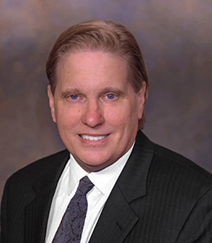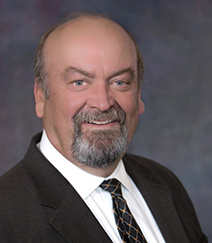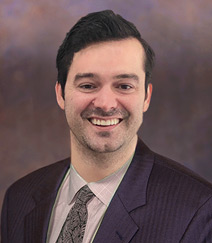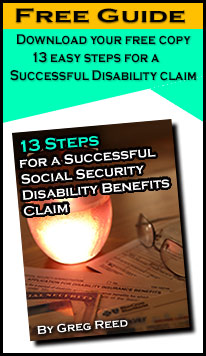Austin Social Security Disability Lawyer
Practice Areas
With over 100 years combined trial experience the attorneys of Bemis Roach & Reed
assist the disabled in Texas recover the disability benefits they deserve.
Social Security Disability
If you are considering filing an application for Social Security Disability Insurance (SSDI) in Texas or have already filed and been denied benefits, our attorneys may be able to help. Sadly over 67% of applicants are initially denied. Our attorneys have extensive experience preparing successful disability applications and will work to ensure that your claim satisfies the Social Security Administration’s exacting requirements giving you the best chance possible to receive the disability benefits you need and deserve. In the event your claim is denied, an Austin Social Security disability lawyer at Bemis, Roach & Reed can guide you through each step in the appeals process, from the first appeal to the federal district courtroom, if necessary.
Long-Term Disability
Long term disability insurance companies routinely deny coverage having decided that they are not governed by the state laws, but by federal ERISA law. As a result, people suffering with disabilities are forced to navigate the highly intimidating Federal Court system. The application forms can be confusing and involve many deadlines that need to be met in order to receive a favorable judgment for LTD benefits. Luckily your chances of success go up as much as 50% when filing a claim with an experienced long-term disability lawyer at your side.
Your Free Initial Consultation
Are you looking to hire a disability lawyer in Austin or elsewhere in Texas? Bemis, Roach and Reed is here to help.
We offer each of our prospective clients a free no obligation one hour phone or office consultation to see if we can help you and if you are comfortable with us. We know how difficult a time like this can be and how hard the decisions are. If we can be of assistance to you and help you find a solution to your issue we will even if that means referring you to another attorney.
Or simply call 512-454-4000 to schedule your Free Consultation with a Texas Disability Lawyer today.
Let’s get you Started:
If you could provide us with some basic information about your claim we will get right back with you with a free case evaluation and schedule your Free Consultation Today.
You can also email us at: contact@brrlaw.com
Why Choose Bemis Roach & Reed?
Why is it important to hire a firm that only practices disability law?
Do you really want to hire a firm that does disability law on-the-side?
The attorneys at Bemis, Roach and Reed have more than 85 years combined experience representing clients in insurance claims. Many firms practice disability law “on-the-side”. They do this usually to supplement their Personal Injury practice so they typically place their case importance on PI first and disability second. Bemis, Roach & Reed is a Disability Law Firm first and last. We are arguably THE DISABILITY LAW FIRM in Texas and everyone one of our over 30 employees is focused solely on working as a team to do the best we can to ensure that your SSDI or Long-term disability claim is successful. Please take the time to read our reviews and let our previous clients speak for us. You will be hard pressed to find a more highly regarded disability firm in the state.
How much does a disability attorney cost?
Never ANY of pocket costs, we only get paid if you do.
You don’t have to provide any payment up front. We work on a contingency fee basis, so we only get paid when you do. Additionally, all attorneys’ fees are strictly regulated by the federal government and must be approved by the Social Security Administration. If your income has been compromised because of an injury or illness, Bemis, Roach & Reed is ready to help. Additionally, if we think you can win your claim without the assistance of an attorney we will tell you.
What does a disability lawyer do?
A knowledgeable Social Security Disability lawyer can:
• Evaluate your case and determine eligibility
• Explain the application filing process
• Help fill out your application and gather medical evidence
• Keep up with important deadlines
• Prepare you for interviews and hearings
• Appeal a denied claim
• Cross examine and question experts hired by the Social Security Administration.
• Represent you at hearings
Most of the administrative law judges in our area know our attorneys by their first name.
They know how well we present a case and we’ve seen what each judge typically wants to rule favorably on an appeal. This is why our success rate is so high. At our firm you’ll be assigned a disability case worker you can contact at anytime to learn the status of your appeal. We employ personnel whose sole job is to gather medical records to ensure your data is up to date and available for the SSA anytime it’s required. You have good reasons for filing for disability benefits and we’ll help you explore your options and guide you through Social Security’s process. Most applicants don’t know exactly what information the Social Security Administration is looking for nor how to present their claim for the best chance of approval. We can help you file your application or appeal your claim. Disability law is what we do.
The Disability Law Firm of Texas
At Bemis, Roach & Reed we work to ensure your Social Security disability claim is presented in the best possible light to receive a favorable judgment for maximized benefits. Typically that will involve working with your doctor and medical staff to gather records of treatment and diagnosis as well as statements from your physicians describing the nature and extent of your disability. We will produce all briefs and arguments necessary to present your claim in front of the administrative law judge at your appeal. We will prepare you for testifying at your hearing and will cross examine medical and vocational experts from the SSA. We will be there to walk with you through this difficult journey and will be available to answer any questions or concerns you may have along the way.
Client Testimonials
“This is a great group of folks who held my hand through a bad place for a long time. It’s so nice to have something go my way for a change. I just really wanted to tell Lloyd thanks, my life is better now because of him.” – M.G.
“After being denied twice for social security disability despite multiple health issues and being over 60, Mr. Jake Roach and caseworker Amber helped me to win my appeal to an administrative law judge. Thanks y’all. That was a heavy burden for 2 years.”– Ms. Newman.
“I am so happy I went with bemis roach and reed to handle my SSDI case the out come couldn’t have went better Jake Roach was the lawyer who handled my case and did phenomenal”– Rick M.
“Overwhelmingly positive and highly effective counsel. Based on a myriad of positive reviews, I contacted Bemis, Roach, and Reed and immediately received expert communication and crystal-clear expectation management. I knew I made the right choice and within two days, we forged a strong attorney-client relationship. Assuming I am one of their many clients, I always felt that I was their priority. A special “thank you” to my dedicated team (Daniel Messenger, Lloyd Bemis, and Amber Woods) for their individual and collective preparation and execution.“ – Matthew K.
“If you are looking for a law firm to help you with disability look no further. I tried to get disability on my own and it was difficult and frustrating. I found Bemis Roach and Reed online and took a chance. It was the best decision. Thanks to Daniel Messenger I won my case. Also when it was all said and done their cost was extremely reasonable and affordable.” – Josh P.
Our Disability Attorneys
Lloyd Bemis
AV Preeminent rated top disability lawyer with over 25 years experience in winning SSDI claims against big insurance companies and the government. Very highly rated by both clients and peers.
Lonnie Roach
Highly experienced and successful ERISA Long-Term disability attorney. Board Certified and one of the top appellate lawyers and one of the most published in Texas he is a top choice for winning LTD appeals.
Greg Reed
Selected to SuperLawyers honor list 6 years in a row. Perhaps THE leader and authority in disability claims in Texas. A true industry resource relating to all legal matters concerning the disabled. The lawyer you need to win your appeal.
Daniel Messenger
Our dynamic Associate Attorney, Mr. Messenger is highly experienced and knowledgeable in SSDI and Long Term disability law. An aggressive and highly successful advocate for disability claims, Daniel has become a star for the firm.
What do lawyers charge to help file for disability benefits?
Disability attorneys only charge if you win and there are no out-of-pocket costs for clients. The lawyer’s fee comes out of the back pay owed.
Latest Blogs
How to Qualify for Social Security Disability (SSDI) Benefits
The Social Security Administration has a number of requirements you must meet before qualifying for Social Security Disability
13 Steps to Win your Disability Claim
Though the filing process can be long, there are several steps you can take to make sure your claim is processed as quickly as possible and that you will be approved for disability benefits.
Does my impairment qualify for disability benefits?
To provide guidance on what medical disorders qualify for disability benefits, the Social Security Administration has created a manual called the Blue Book which lists impairments that are considered severe enough to prevent an adult from working.
Sign up for our Monthly Newsletter
News you can use from Bemis, Roach & Reed. Monthly legal and practical topics ranging from home safety tips to helpful hints on filing for disability benefits.
NO FEE unless we win.
We are accepting new clients and offer free consultations.
Decades of experience appealing denied disability claims with no out-of-pocket costs for you.
A simple phone call is all it takes to learn our suggestions on the best course of action for your particular situation.
Don’t keep struggling and worrying, take the step to get the facts.
We know how difficult it can be, let us help you today.
Throughout the State of Texas
Travel Issues? – Not a Problem.
Being disabled often makes traveling difficult, but with today’s technology you never have to physically come to our office. We would love to have you come in and personally discuss your case but if you cannot make it in your claim can be processed remotely. We can handle everything through email, fax, scan, and phone. Don’t let distance be a reason not to call us. We can help you, no matter where you are located. Case work is typically done electronically now so distance has become irrelevant.
We serve clients throughout the State of Texas and if a meeting is requested we will be there to represent you.
(866) 433-4979
Has your disability been denied?
Most disability claims are denied initially.
Fortunately, your chances of winning needed benefits go up as much as 50% with an experienced Social Security disability lawyer. The LTD and SS lawyers of Bemis, Roach & Reed have been helping folks just like you win claims since 1993. We urge folks not to give up. Your financial future is too important not to fight for the assistance you deserve. Give us a call and let us help you explore your options, the consultation is completely free, and we would love to help. We have an A+ BBB rating, have won client service awards and are listed in SuperLawyers. Know what your rights REALLY are, let us fight for you. Please don’t delay, there may be deadlines expiring. Call 512-454-4000 and get help from Texas’ premier ss disability lawyers today!
Experienced, Trusted, Successful. Since 1993
The founding partners of Austin Social Security and Long Term disability lawyers Bemis, Roach and Reed
are all recognized as AV Rated attorneys by Martindale-Hubbell.
The AV Peer Review Rating is an outstanding achievement. This elite status demonstrates that an attorney has earned the highest rating available for their legal ability and professional ethics. Partner and Austin disability attorney Lonnie Roach earned an AV Preeminent Rating of 5.0 out of 5.0 for his ethical standards and legal ability. Mr. Roach specializes in ERISA and long term disability cases. He is board certified in personal injury trial law by the Texas Board of Legal Specialization. Mr. Roach is the primary appellate lawyer at The Law Offices of Bemis, Roach & Reed. Additionally, he has successfully argued cases before the Texas Court of Appeals, the Texas Supreme Court and the United States Court of Appeals, Fifth Circuit.
















